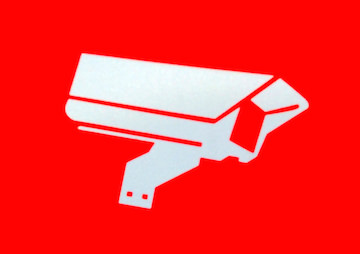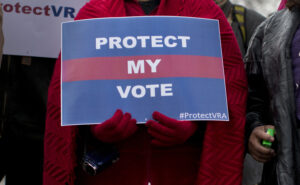Federal Judge Throws Out Lawsuit by ACLU and Nation Magazine Against the NSA
In dismissing the plaintiffs’ claim that they were threatened by unwarranted surveillance, the judge ludicrously reasoned that, because the NSA did not admit to its spying, the plaintiffs' fears were "subjective." Mike Mozart / CC BY 2.0
Mike Mozart / CC BY 2.0
A federal district judge has dismissed a lawsuit by the American Civil Liberties Union and others against the National Security Agency on the ludicrous grounds that, because the NSA did not admit to its spying, the plaintiffs’ claim that they were threatened by unwarranted surveillance was based on “subjective fear.”
The Guardian reports:
The judge in the case, TS Ellis III, said the suit relied on “the subjective fear of surveillance”, because the NSA did not admit to having collected any of the information it was alleged to have collected by the ACLU. …
Lawyers for the plaintiffs argued that the surveillance program was innately harmful, despite the NSA’s silence on it in court. “The NSA’s mass surveillance violates our clients’ constitutional rights to privacy, freedom of speech, and freedom of association, and it poses a grave threat to a free internet and a free society,” said Ashley Gorski, a staff attorney with the ACLU national security project. “The private communications of innocent people don’t belong in government hands.” …
“The court has wrongly insulated the NSA’s spying from meaningful judicial scrutiny,” said ACLU National Security Project staff attorney Patrick Toomey, who argued the case.
[Justice] Ellis is a former navy aviator who in 2006 dismissed a suit against the CIA brought by a German man who accused the agency of abducting and torturing him as part of the US “extraordinary rendition” program. Notably, Ellis dismissed the case not on merit, but on the grounds that a trial would risk national security.
“[P]rivate interests must give way to the national interest in preserving state secrets,” he wrote at the time.
The plaintiffs in the just-dismissed case include Wikipedia, the Nation magazine, Amnesty International and six other organizations. The group alleged that the capture and storage of their communications by the NSA violated their constitutional protections against unwarranted search and seizure.
In scholarly circles — and the U.S. judiciary is one — the branding of a belief, opinion or concern as “subjective” (as opposed to objective) is a mark against a cause. It can be used to undermine one’s opponent by signaling to others that the opponent’s claim fails to satisfy a standard of verifiability. Such standards are often arguable.
In this case, the charge of subjectivity served to defang ACLU lawyers by undermining their claim that mass government spying is innately dangerous.
In a private email, a Truthdig reader illustrated the absurdity of Judge Ellis’ ruling as follows:
In the security of my water closet, I feel “subjective fear” when masked men peer at me through the window, this fearful subjectivity worsens when more of them appear looking down at me through my skylight. It worsens further when they follow me about as I walk through the drugstore’s aisles looking for the toothpaste, & when I see them in the back of the post office reading my mail before it gets delivered to my home.
I also have a subjective fear of judges who claim that the incessant presence & behaviors of these spies is not innately harmful to me or anyone.
— Posted by Alexander Reed Kelly.
Your support matters…Independent journalism is under threat and overshadowed by heavily funded mainstream media.
You can help level the playing field. Become a member.
Your tax-deductible contribution keeps us digging beneath the headlines to give you thought-provoking, investigative reporting and analysis that unearths what's really happening- without compromise.
Give today to support our courageous, independent journalists.






You need to be a supporter to comment.
There are currently no responses to this article.
Be the first to respond.